The focus of my studies on the American Revolution is the militia activities in the southern campaigns. In this context, I believe the term ‘Partisan’ is best used when describing those men who turned from any thought of surrender after the fall of Charleston in May 1780. In considering candidates for the Top Ten Partisans in the southern campaigns I used May as a starting point of analysis and all of 1780 as the true era of the independent partisan, even though I looked at contributions before and after. Any such list or rankings contained therein is completely subjective as I do not believe any reasonable basis exists upon which to compare their various contributions. In truth, all these men played their respective roles and this ranking is nothing but opinion offered for the sake of fun and conversation.
1. Elijah Clark
Active throughout the war and wounded at least three times, Elijah Clarke very much deserves the term “indomitable.” As late as 1775 Elijah remained Loyal to the crown, but he joined the Whigs soon after reports spread across the Georgia frontier of British Indian agents trying to organize Cherokee war parties. Clarke never looked back. Even when Charleston fell and most of the backcountry residents in his area gave parole, Clarke reacted by raising his own regiment which came to be known as the Georgia Refugees. Clarke stayed in the field and fought from July 1780 until long after most other regiments disbanded. Elijah and his men fought in the Florida Expedition, Kettle Creek, Musgrove’s Mill, both battles of Augusta, Blackstock’s Plantation, Long Cane, and continuously manned the Frontier Forts against Creek and Cherokee war parties. Unfortunately, Elijah and the Georgia Refugees did not enjoy a reputation for kindness or polite behavior. Instead, they have been shown to have murdered prisoners and taken a good measure of personal revenge in their work. Indeed, Clarke’s personal vendetta against Thomas Brown is well documented. In spite of all that, one need only peruse the letters of Lord Cornwallis during the crucial period of 1780 to realize that Elijah Clarke was a serious thorn in the general’s side and cost the British their ability to govern the southern backcountry.[1]
2. Thomas Sumter
Disliked by historians for his refusal to cooperate with Greene and for his oversensitivity to any threat to his own command, Sumter was nonetheless the favorite commander for most of the South Carolina militia active in the southern campaign. Sumter fought early in the war at Charleston and against the Cherokee but then retired to his home near the High Hills of the Santee. When Charleston fell to the British in May 1780, Sumter came immediately out of retirement and rode to North Carolina. He formed an army of several hundred experienced militia fighters and rallied South Carolina back into the war. Thomas Sumter’s career was up and down but he always remained ready to ‘strike a blow’ against the British. Sumter commanded at Rocky Mount, Hanging Rock, Fishing Creek, Fish Dam Ford, and Blackstock’s Plantation all in 1780 before Greene arrived. Even before Morgan’s victory at Cowpens, Thomas Sumter had devised the successful strategy for defeating Banastre Tarleton’s Legion. He was so effective that General Cornwallis was obliged to issue orders that no one could travel in groups of under 125 men. The occupation of South Carolina was a shambles largely due to Thomas Sumter’s determination and dedication to the cause.[2]
3. John McClure
Captain McClure was at the Gaston home when news of the Waxhaws disaster spread across the district. John and his cousins still fumed over the news when a Tory colonel arrived with instructions that everyone should meet at Alexander’s Old Fields and give their paroles. A plan was formed. McClure gathered 32 volunteers and “attacked Colonel Housman, on the appointed day, and routed about two hundred men without losing a man.” In fact, they avoided bloodshed so as to recruit the men giving parole and offer an immediate alternative. The plan worked and McClure’s force doubled in size.[3] He went on to play a major role at Huck’s Defeat and Rocky Mount before getting elected colonel and leading the central charge at Hanging Rock. It’s a terrible shame that his life and career came to an abrupt end in that same charge. Otherwise history might give the captain his due credit. After all, It was John McClure “who was the first that made any resistance to the Enemy in this part of the country.”[4]
4. Isaac Shelby
Even before British officer Patrick Ferguson sent his belligerent letter across the mountains, Isaac Shelby and the Overmountain Men were busy saving the revolution in South Carolina. With Gates defeated at Camden and Sumter’s disaster at Fishing Creek, revolution in South Carolina found its darkest moment. And then came Shelby. In August 1780, Isaac Shelby joined Elijah Clarke and James Williams to defeat Alexander Innes at Musgrove’s Mill. The victory lifted spirits in the backcountry and provided Cornwallis quite a nasty surprise. Instead of Camden having cleared the way for his invasion of North Carolina, the British general found himself allocating resources to quelling rebellion in areas they should already control. Two months later and Shelby was back again, and this time the Backcountry Men showed Patrick Ferguson why it might be a good idea to maintain a more civil demeanor.[5]
5. Francis Marion
Considering the large following enjoyed by Francis Marion, not placing him at the top of the list almost seems like an invitation for fisticuffs. After all, isn’t the Swamp Fox just as large a presence as ‘The Patriot, Benjamin Martin’? The answer is actually, no, he wasn’t. Francis Marion left Charleston injured and didn’t get back into the field as quickly as men like Thomas Sumter and John McClure. Not only that, when Marion did get involved after the Camden disaster, his battles tended to look very small compared to the open challenges to British dominance offered up by larger armies with Sumter, Clarke, and the Overmountain Men. On a smaller scale perhaps, Marion challenged British ability to rule in South Carolina and made himself a major pain in the butt for Lord Cornwallis, just like the other partisans. His battles at Blue Savannah, Black Mingo Creek, and Tearcoat Swamp kept the Georgetown District Tories cowed and prevented the British from setting up or maintaining any real civil control over the area.[6]
6. John Sevier
The other colonel from Watauga who led Overmountain Men at King’s Mountain, John Sevier was more Indian fighter than dedicated Whig. His reputation was made in defense of Fort Watauga in the Cherokee War and, later in life, Sevier claimed to have led a total of 33 battles against the Indians. But, as they say, nothing is 100% and John Sevier also found the time to take his regiment across the mountains in pursuit of Patrick Ferguson. Sevier and his men fought on the other side of King’s Mountain across from Isaac Shelby and kept Ferguson’s men trapped between the two regiments. After the battle Sevier was helpful in halting the Tory executions after an old acquaintance requested clemency. There was no time to rest during the revolution; as soon as Colonel Sevier arrived back in Watauga, he was off to put down yet another uprising from the Chicamaugans.[7]
7. William Richardson Davie
A young and spirited man from North Carolina, William Davie also came to the party early and stayed late. During Sumter’s summer campaign, Davie raided the British at Hanging Rock while Sumter attacked the post at Rocky Mount. Sumter failed that day but the stage was set for his own attack on Hanging Rock a week later that scattered the North Carolina loyalists and put the Prince of Wales regiment out of commission permanently. Davie then stood up to the British Legion at Charlotte in September 1780 and created a ‘hornet’s nest’ that helped convince Cornwallis to abandon his plans for North Carolina until the following year.[8]
8. James Williams
Deeply religious and zealously Whig, James Williams found himself one of a very few men in the 96 District who chose to refuse parole and rode off to find the war. Once Charleston fell and British columns started into the backcountry, most of the men in Williams’s district voted to take parole along with their commander, Andrew Williamson. But not Colonel Williams. No sir, Williams took his small company and joined with Thomas Sumter in the summer campaign. Fortunately for the cause, Williams clashed with Sumter over strategy and took his followers to the more southerly 96 District where they joined with Elijah Clarke and Isaac Shelby at Musgrove’s Mill. After the victory, Williams received a promotion to brigadier general which caused an even greater clash with Sumter over command of the state militia. The dispute caused Sumter to miss King’s Mountain thereby paving the way for Williams to lead his men up the mountain and participate in Ferguson’s defeat. To this day, one still finds songs and poetry dedicated to the gallant Williams even as speculation continues that perhaps Ferguson and Williams literally killed each other with the last shots of that pivotal battle.[9]
9. Andrew Pickens
In spite of his later contributions with Morgan and Greene, Andrew Pickens still falls close to the bottom of the top ten list. Yes, he played a pivotal role in several of the major battles in 1781 including that wonderful and storied performance at Cowpens. But should history completely ignore the fact that he laid down arms in June 1780 along with Andrew Williamson? It wasn’t until the end of the year when Cornwallis was already in a very precarious situation that Pickens rose from parole to rejoin the Whigs. Even then Pickens didn’t seem particularly attached to the Cause. According to Georgia historian Hugh McCall, it was only when the British plundered his personal property that Andrew Pickens grew zealous enough to rise and return to the fight.[10]
10. James McCall
One of the company captains from the 96 District, James McCall refused the parole taken by Williamson and Pickens. Instead, McCall “would not submit” and recruited about 25 other likeminded individuals from the regiment.[11] At first, McCall took his men around the South Carolina backcountry engaging in small skirmishes but then he joined with Elijah Clarke and fought at Musgrove’s Mill. From there the two officers split to recruit men for an attack on Augusta. At that point, Camden was lost and Sumter scattered, making the job a bit tough for McCall who only recruited about 80 men. Clarke also fell a bit short and the men took on Thomas Brown (and almost had him) with less than half the strength needed for the job. More guts than brains, the siege was lost sending McCall on an end run across the base of the mountains to North Carolina. From there, McCall rejoined Clarke and fought at Blackstock’s before being slightly wounded in the Long Cane fight where Clarke took a major hit to the shoulder. McCall then joined with William Washington at Hammond’s Store before fighting at Cowpens as a cavalry troop captain. James McCall was a very active and dynamic Whig who became quite the cavalry officer. Unfortunately for the country and for McCall, smallpox ripped through the militia and killed him in March 1781.[12]
A few other notables
- Andrew Neel – Loved and highly thought of but died at Rocky Mount early in Sumter’s summer campaign.
- Edward Lacey – Troublesome personality but a generally active colonel from the Chester District who fought in most of Sumter’s battles.
- William Bratton – Sometime rival to Lacey and also a generally active Whig from the Chester District.
- William Hill – Wounded at Hanging Rock after a brief but active career in the early days of June and July of 1780.
- Richard Winn – Another of Sumter’s colonels who arrived early for the party and stayed late to help clean up the mess.
- Samuel Hammond – From the 96 District, one of those few who refused to give parole with Pickens and Williamson. Provided some interesting battle descriptions after the war.
- Peter Horry – Marion’s right hand man.
[1] Hugh McCall, The History of Georgia; containing brief sketches of the most Remarkable Events, Up to the Present Day, Volume 2, (Savannah, GA: Williams, 1816).
[2] Robert D. Bass, Gamecock, The Life and Campaigns of General Thomas Sumter (Orangeburg SC: Sandlapper Publishing, 1961).
[3] Joseph Gaston, “Mr. Gaston’s Narrative from A Reminiscence of the War of the Revolution,” South Carolina Historical Magazine 3rd Ser. 2 (August 1873), 90 – 92.
[4] Joseph Gaston, Pension application of Joseph Gaston W23089, transcribed by Will Graves at http://revwarapps.org/w23089.pdf .
[5] J. G. M. Ramsey, Annals of Tennessee (Charleston SC: Walker & Jones, 1853).
[6] Robert D. Bass, Swamp Fox, The Life and Campaigns of General Francis Marion (Orangeburg SC: Sandlapper Publishing, 1959).
[7] Cora Bales Sevier & Nancy S. Madden, Sevier Family History with the Collected Letters of Gen John Sevier (Washington, DC: published by the author, 1961).
[8] Blackwell P. Robinson, William R. Davie (Chapel Hill, NC: University of North Carolina Press, 1957).
[9] William T. Graves, Backcountry Revolutionary, James Williams (1740 – 1780) with Source Documents (Lugoff, SC: Woodward Corp, 2012).
[10] William R. Reynolds, Jr., Andrew Pickens, South Carolina Patriot in the Revolutionary War (Jefferson NC: McFarland & Company, 2012).
[11] Alexander Young, Pension application of Alexander Young S35755, transcribed by Will Graves at http://revwarapps.org/s35755.pdf .
[12] McCall, The History of Georgia.







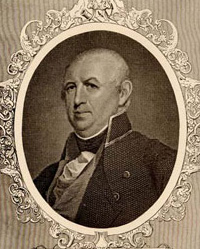


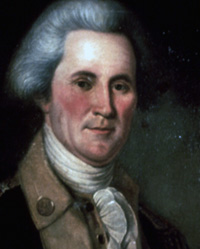
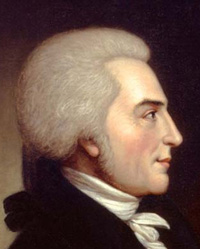
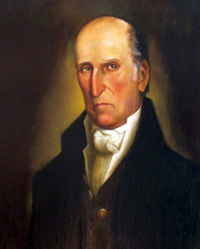

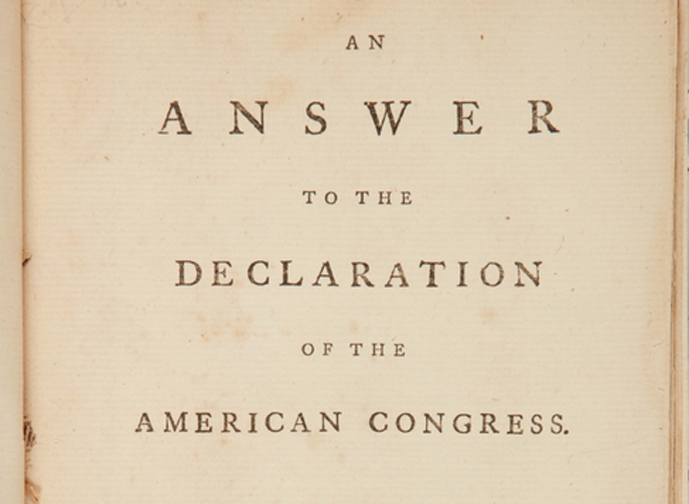


11 Comments
Great article. You mention Edward Lacey (who played a role at Huck’s Defeat). His father was a dedicated Tory, and he had a brother who fought for both sides during the war. I’m sure most of the men on your list had relatives who were Tories. If they didn’t, then their men had close relatives who were Tories. The Revolutionary War was as much a civil war pitting American against American as it was a rebellion against England.
John, I am looking through some of my notes from various pension application files and ran across this little tidbit that you might enjoy. It concerns Lacey’s reading of the Declaration of Independence during the Cherokee War. From the Pension Application of Robert Wilson W2302:
“General Williamson called upon Captain Lacey to open the dispatches, who done so and on discovering the contents Captain Lacy raised up both hands and exclaimed THANK GOD for this – He then read the Declaration to the officers who were about him – General Williamson wished it read to the Army to effect which the Army was formed in a Hollow Square, and to give Captain Lacey a better chance to be heard by the whole Army General Twiggs brought up a gentle horse and held the same while Captain Lacey stood up on the saddle and read the Declaration of Independence to the whole Army at the conclusion of which there was much firing of arms and rejoicing.”
John, I mentioned above that Lacey is a bit troublesome to research. If one takes William Hill’s memoirs literally and without questioning his point of view, both Hill and Lacey come across as wonderful guys and great heroes. However, there is also some evidence in the pension files that, after Huck’s Defeat, Lacey’s men removed him as their Colonel and replaced him with John McClure. McClure’s term was short due to his death at Hanging Rock only a couple of weeks later. Lacey then managed to get reelected to the Colonel position of the Chester regiment. The record is very unclear about these events. Can’t really tell why or how he fell out of favor with the men. It may have involved his father being a Tory but, on the other hand, it may have been his unfortunate personality and penchant for bullying. Hard to tell for sure. Apparently, there is great debate about his role at Huck’s Defeat. There was a reunion held sometime in the 1800s in which he was not invited probably due to his ongoing dispute with Colonel Bratton concerning Huck’s Defeat.
Unfortunately, there is simply not a great deal of detail from other sources about Edward and it is difficult to get a firm grip on. I am on vacation today and away from my notes but, in a couple of days I will try to remember to post some interesting items from the various pension files I recently went through. Glad you liked the article.
As a resident of South Carolina, I’m particularly interested in the Southern Campaign.
To digress from the Southern campaign , i have no problem with any of these choices, though a more local choice for me would be John Walker of North Carolina. Walker was a member of the Safety Committee in Tryon, a delegate in Hillsboro, and the first signer, perhaps the chair, of the Tryon Resolves. He led men at Moores Creek and was an officer in the 1st NC Regiment, participating in campaigns in NY and NJ and becoming an aide de camp to Washington for a time before returnjng to become a militia colonel in NC. Those aren’t Southern campaign for the most part, but 5 of his sons fought in NC and Ferguson camped on his land to and from Kings Mountain. There is a story of his wife being locked up in the basement by Ferguson.
Also, there are some who say that the Loyalist James Dunlap was at his house when killed or murdered.
He doesn’t trump the other individuals, but I wouldn’t exclude his importance.
What about Andrew Hampton?
Scott, Thanks for bringing this old article back up to the surface. I was particularly delighted to see your mention of James Dunlap. I mentioned his death in an article last year that focused on Elijah Clarke. As luck would have it, I ran across a rather choice tidbit to add after the story was published. Since you reminded me, I finished the story and hope to send it in for consideration by Editor Hagist later this weekend. I hope you see it in a future post. 🙂
Can anyone recommend any books on Elijah Clark? I’d like to learn more about him.
I don’t really know of many books on Elijah. There was one biography called “Hero of Hornet’s Nest” but, to tell the truth, it is quite poorly done. More like historical fiction. Not only is there plenty of speculation and made up dialogue, at one point the book even has Elijah taking part in two different campaigns that covered the same time period. With any luck at all, Elijah will catch on and a PHD candidate or two will do a thesis on him. However, that aside, I did a three part article on the Elijah and the Georgia Refugees here at the JAR a couple of years back.
https://allthingsliberty.com/2014/09/elijah-clarke-and-the-georgia-refugees-fight-british-domination/
https://allthingsliberty.com/2014/09/the-georgia-refugees-turn-the-tide-against-the-british/
https://allthingsliberty.com/2014/09/victory-for-the-georgia-refugees/
This fellow was also one on Elijah Clarke’s men. Paddy Carr.
https://allthingsliberty.com/2016/05/paddy-carr-a-honey-of-a-patriot/
And Elijah played a large role in the story of James Dunlap.
https://allthingsliberty.com/2016/01/major-james-dunlap-murdered-twice/
Thank you, Mr. Lynch. I stumbled upon your first article on on the Georgia Refugees yesterday. Very interesting work and well written!
Davie, technically, was not from North Carolina. He was born in Egremont, England and was raised in South Carolina. Quite ironically, he studied and practiced law in North Carolina, became the NC Western District cavalry commander during 1780, then a state politician for a long time, then Governor, was instrumental in creating UNC-Chapel Hill, ultimately retiring back to South Carolina where died and is buried.